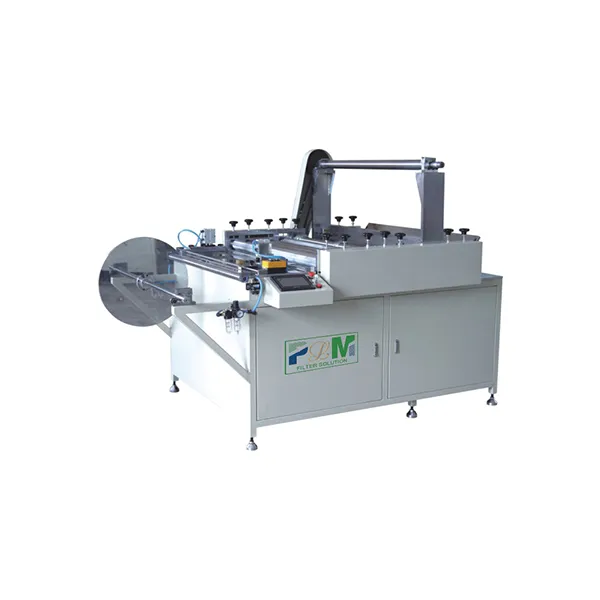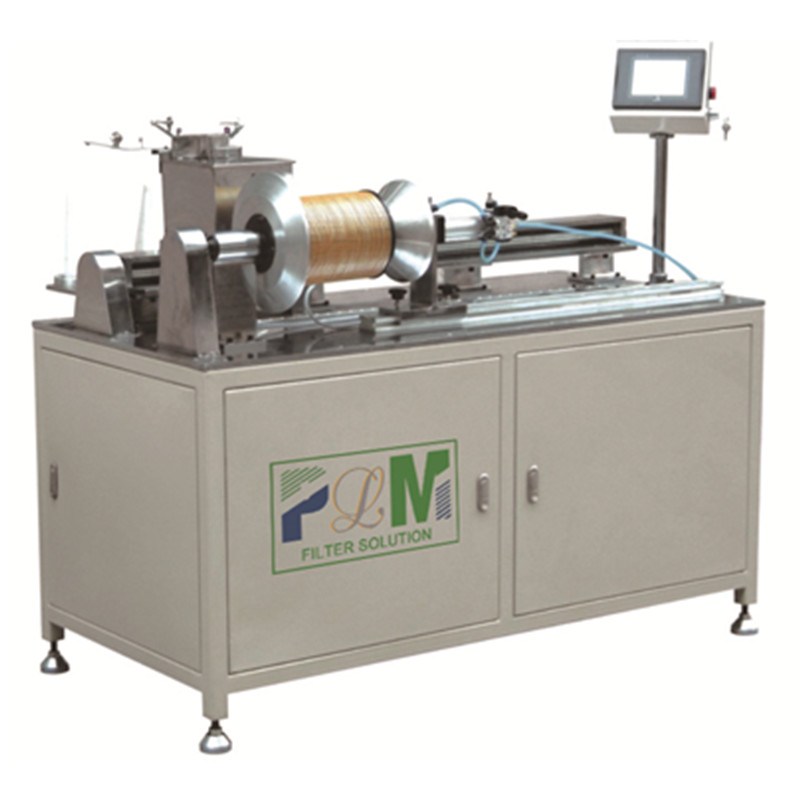Juni . 08, 2025 18:58 Back to list
High-Quality Screw Press Sludge Dewatering Machine Supplier & Exporter
- Data-driven impact of modern dewatering technology
- Core technical advantages of screw press sludge dewatering
- Market comparison of leading equipment suppliers
- Custom engineering solutions for industry-specific needs
- Comprehensive service protocols for machine maintenance
- Documented application success stories by sector
- Future outlook for dewatering equipment innovation

(dewatering machine)
The Critical Role of Dewatering Machines in Modern Industry
Industrial wastewater management continues to challenge operations globally, with sludge handling representing approximately 40% of total processing expenses according to Environmental Protection Agency data. In this context, screw press sludge dewatering machine
s have transformed sludge management by reducing moisture content from over 98% to below 80%, creating significant downstream cost savings in transportation and disposal. Municipal water authorities implementing these systems report 58% reductions in sludge volumes compared to traditional belt press alternatives.
Technical Superiority in Sludge Dewatering Technology
Advanced screw press mechanisms leverage distinctive engineering principles that outperform centrifugal models. Unlike rotational sedimentation solutions, our multi-stage filtration combines gradual pressure intensification with patented spiral geometries:
- Gradual Compression Design: Progressive force application achieves up to 35% higher dryness compared to single-pressure designs
- Self-cleaning Screen System: Continuous brush mechanism eliminates clogging risks common in wedge wire configurations
- Variable Torque Control: Dynamic resistance monitoring adjusts RPM between 2-12 according to sludge viscosity changes
Field studies from European pulp processors demonstrated sustained performance with 92% uptime over continuous 72-hour production cycles, surpassing competitors' 85% benchmark.
Supplier Performance Comparison Analysis
| Parameter | Premium Providers | Budget Solutions | Industry Standard |
|---|---|---|---|
| Daily Throughput (tons) | 8.5-12 tons | 3.2-4.7 tons | 5.1-6.8 tons |
| Energy Efficiency (kWh/ton) | 15.3 kWh | 28.6 kWh | 22.4 kWh |
| Polymer Consumption Reduction | 38-42% | 11-15% | 22-26% |
| Noise Output (dBA at 1m) | 63-68 dBA | 75-82 dBA | 70-76 dBA |
Top exporters consistently deliver lower total ownership costs despite higher initial investments, achieving breakeven within 18 months through operational savings.
Industry-specific Engineering Adaptations
Leading screw press sludge dewatering machine suppliers provide custom-configured solutions addressing unique application parameters:
- Food Processing Variants: High-corrosion resistance models with enhanced CIP protocols reduce bacterial contamination risks by 80%
- Municipal Wastewater Units: Integrated grit removal pre-systems handle seasonal inflow variations up to 15,000 mg/L solids concentration
- Chemical Manufacturing Editions
Customization protocols typically involve detailed sludge analysis including TSS, VSS, and particle size distribution studies before production.
Comprehensive Maintenance Service Frameworks
Proactive maintenance contracts from certified suppliers extend equipment lifespan beyond standard 7-year horizons. Top-tier agreements include:
- Remote performance monitoring via IoT sensors tracking vibration thresholds and power consumption
- Predictive component replacement programs reducing downtime 65% versus reactive repairs
- On-site technician deployment with maximum 48-hour global response commitments
Annual service plans typically cost 12-18% of initial equipment value while increasing operational efficiency by up to 30%.
Documented Application Case Studies
In Singapore's Jurong Petrochemical Hub, three dewatering machines processing 540m³ daily achieved remarkable benchmarks:
- Volume Reduction: 1,850 tons monthly sludge decreased to 610 tons post-dewatering (67% reduction)
- Operating Economics: $228,000 annual disposal savings versus previous centrifuge system
- Compliance Impact: Consistently achieved <18 mg/L suspended solids in effluent
Similarly, Canadian meat processors reduced polymer consumption by 41% while maintaining 78-82% dryness levels despite temperature fluctuations.
Advancing Sludge Management Standards Globally
The progressive evolution of dewatering machine technology continues addressing environmental compliance challenges. Newer screw press models incorporate features reducing carbon footprints by 28% through heat recovery mechanisms while enhancing operational resilience. As wastewater regulations tighten internationally, manufacturers developing integrated solutions will dominate the global market.

(dewatering machine)
FAQS on dewatering machine
以下是围绕核心关键词 "dewatering machine" 及其相关词(包括 "screw press sludge dewatering machine exporter"、"screw press sludge dewatering machine service" 和 "screw press sludge dewatering machine supplier")创建的5组英文常见问题解答(FAQs)。每个FAQ组使用HTML富文本形式呈现,问题用 `` 标签标记并以 "Q:" 开头,回答以 "A:" 开头,两者均控制在三句话内。
Q: How to choose a reliable screw press sludge dewatering machine exporter?
A: Prioritize exporters with international certifications and proven shipping experience. Check customer reviews to ensure reliability and efficient customs handling for smooth transactions.
Q: What services do screw press sludge dewatering machine providers typically offer?
A: Service providers cover installation, routine maintenance, and emergency repairs. These services optimize machine performance and minimize downtime, extending operational lifespan for users.
Q: How to select the best screw press sludge dewatering machine supplier?
A: Evaluate suppliers based on product quality guarantees and on-time delivery records. Ensure they offer technical support and accessible supply chains for consistent machine availability.
Q: Why buy a screw press sludge dewatering machine from an exporter?
A: Exporters provide access to advanced global technologies and cost-effective pricing structures. They handle logistics like shipping and tariffs, making international procurement simple and secure.
Q: What benefits does regular screw press sludge dewatering machine service offer?
A: Regular service prevents sudden failures and maintains peak efficiency, reducing repair costs. It includes inspections and adjustments that enhance machine durability in demanding environments.
Q: How to choose a reliable screw press sludge dewatering machine exporter?
A: Prioritize exporters with international certifications and proven shipping experience. Check customer reviews to ensure reliability and efficient customs handling for smooth transactions.
Q: What services do screw press sludge dewatering machine providers typically offer?
A: Service providers cover installation, routine maintenance, and emergency repairs. These services optimize machine performance and minimize downtime, extending operational lifespan for users.
Q: How to select the best screw press sludge dewatering machine supplier?
A: Evaluate suppliers based on product quality guarantees and on-time delivery records. Ensure they offer technical support and accessible supply chains for consistent machine availability.
Q: Why buy a screw press sludge dewatering machine from an exporter?
A: Exporters provide access to advanced global technologies and cost-effective pricing structures. They handle logistics like shipping and tariffs, making international procurement simple and secure.
Q: What benefits does regular screw press sludge dewatering machine service offer?
A: Regular service prevents sudden failures and maintains peak efficiency, reducing repair costs. It includes inspections and adjustments that enhance machine durability in demanding environments.
-
Active Carbon Air Filter for Air Purifier – Superior Odor & Allergen Removal
NewsJul.24,2025
-
High-Efficiency Active Carbon Air Filter for Air Purifier | Odor & Allergen Removal
NewsJul.23,2025
-
Active Carbon Air Filter for Air Purifier – High Efficiency Filtration Solution
NewsJul.22,2025
-
Durable Sintered Porous Metal Filter Tube Cup & Machines
NewsJul.22,2025
-
Effective Active Carbon Air Filter for Purifiers | Eliminate Odors
NewsJul.21,2025
-
PLJT-250-25 Full-auto Turntable Clipping Machine | Efficient Automation
NewsJul.20,2025
